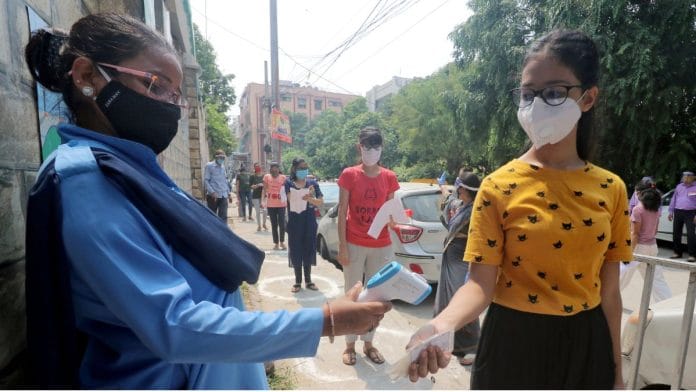New Delhi: The Supreme Court on 1 September upheld Telangana’s rules for admission to MBBS and BDS courses under the state quota, settling a long-running dispute. A bench of Chief Justice of India B.R. Gavai and Justice K. Vinod Chandran affirmed the 2017 rules—amended in July 2024—that require a candidate to have studied or resided in Telangana for four consecutive years before the qualifying examination.
Several petitions had challenged the rules, arguing they unfairly excluded students who pursued part of their schooling outside the state. The court accepted the state government’s 2024 amendment, which broadened eligibility to include students whose parents’ employment or service transfers forced them to live elsewhere.
“The appeals of the state and the university are allowed, setting aside both the impugned high court judgments. The students’ writ petitions stand dismissed,” the bench said.
A 32-page judgment, reserved on August 5 and delivered on September 1, explained, “This is to mitigate the grievances of those who claim that they were taken out of the state by compulsion of the movement of their parents outside the state by reason of employment in Government/All-India Services/Corporations or Public Sector Undertakings constituted as an instrumentality of the State of Telangana as also defence and paramilitary forces who trace their nativity to the state, subject to the conditions thereunder.”
What the Telangana rules say
The original 2017 rules allowed only those who studied in Telangana for four consecutive years up to Class 12 to be treated as “local candidates”. This excluded children of Telangana residents who studied outside due to parental postings.
The 2024 amendment addressed this concern. It now recognises either study or residence in Telangana for four consecutive years ending with the qualifying year. This ensures that children of government servants, defence personnel, or public sector staff do not lose the benefit of domicile quotas because of compulsory transfers.
The Supreme Court endorsed this version, holding that it was fair, constitutionally valid, and consistent with the purpose of state quotas.
The court overturned earlier Telangana High Court rulings that had expanded the definition of “local candidate” to include permanent residents, even if they had not studied or resided in the state for four years. The bench said such an expansion by the high court under Article 226 risked undermining Article 371D—a special constitutional provision protecting local opportunities in education and employment in Andhra Pradesh and Telangana.
By upholding the state’s definition, the Supreme Court stressed that while domicile rules must not be arbitrary, states are entitled to frame policies that ensure local students— particularly from marginalised communities—get fair access to professional courses.
Statewise NEET domicile quotas in India
The Telangana case has drawn attention to the unequal and often complex framework of domicile quotas across India. Since each state defines its own eligibility criteria for the 85% state quota seats in medical colleges, there is no uniform standard. Instead, different measures of “local” identity are applied ranging from years of residence, place of study, parental domicile, to even linguistic and cultural ties.
In Andhra Pradesh, the rule mirrors Telangana, requiring candidates to have studied in the state for four years. Arunachal Pradesh reserves 80% of its seats for Arunachal Pradesh Scheduled Tribes (APST), while the remaining 20% is open to students who have lived in the state for at least three years and completed Class 12 there.
Assam follows a stricter rule: The candidate or their parents must have lived in Assam for a continuous period of 20 years, and the candidate must have studied from Class 7 to Class 12 within the state.
Some states give preference to parental domicile over the candidate’s place of study. Bihar, for instance, has no study requirement for the student and bases eligibility solely on the parent’s residence and employment.
Chhattisgarh requires the candidate to be born in the state, hold a domicile certificate, and also have passed Class 12 from a school within the state.
Goa demands a minimum of 10 years’ residence, though this is reduced to five years for those whose parents or grandparents were born in Goa, along with passing Class 12 in the state. Gujarat provides for children of state government or defence employees posted outside the state, but also requires domicile certificates from those born outside Gujarat yet educated in the state.
Karnataka’s rules are among the most layered. A candidate must have studied in Karnataka for at least seven years between Class 1 and Class 12 and passed both Class 10 and Class 12 in the state. Their parents must also have studied in Karnataka for seven years, and in addition, the candidate and their parents should have Kannada, Tulu or Kodava as their mother tongue. Parents must also be domiciled in Karnataka to qualify under the state quota.
Other states adopt simpler criteria. In Madhya Pradesh, West Bengal, Manipur, Meghalaya, Mizoram and Odisha, candidates only need to be domicile certificate holders. In Delhi, Jammu and Kashmir and Jharkhand, candidates must have passed Class 12 from a school within the state. Uttar Pradesh allows candidates who have passed both Class 10 and Class 12 in the state to skip domicile certification, but those who studied only one of these levels in the state must produce proof of parental residence in Uttar Pradesh.
Rajasthan applies a combination of residence and study requirements. Parents must have lived in the state for at least 10 years, while the candidate should be a biological child (not adopted) who has studied from Class 8 to Class 12 in Rajasthan. Special provisions also exist for children of defence or paramilitary personnel, either hailing from Rajasthan or posted in the state at the time of admission.
For NEET aspirants in Telangana, the Supreme Court’s ruling now confirms that the four-year rule, based on either study or residence, remains the benchmark for claiming a local quota seat.
(Edited by Viny Mishra)
Also read: SC ends domicile quota in PG medical admissions. What ruling says & why southern states are unhappy






